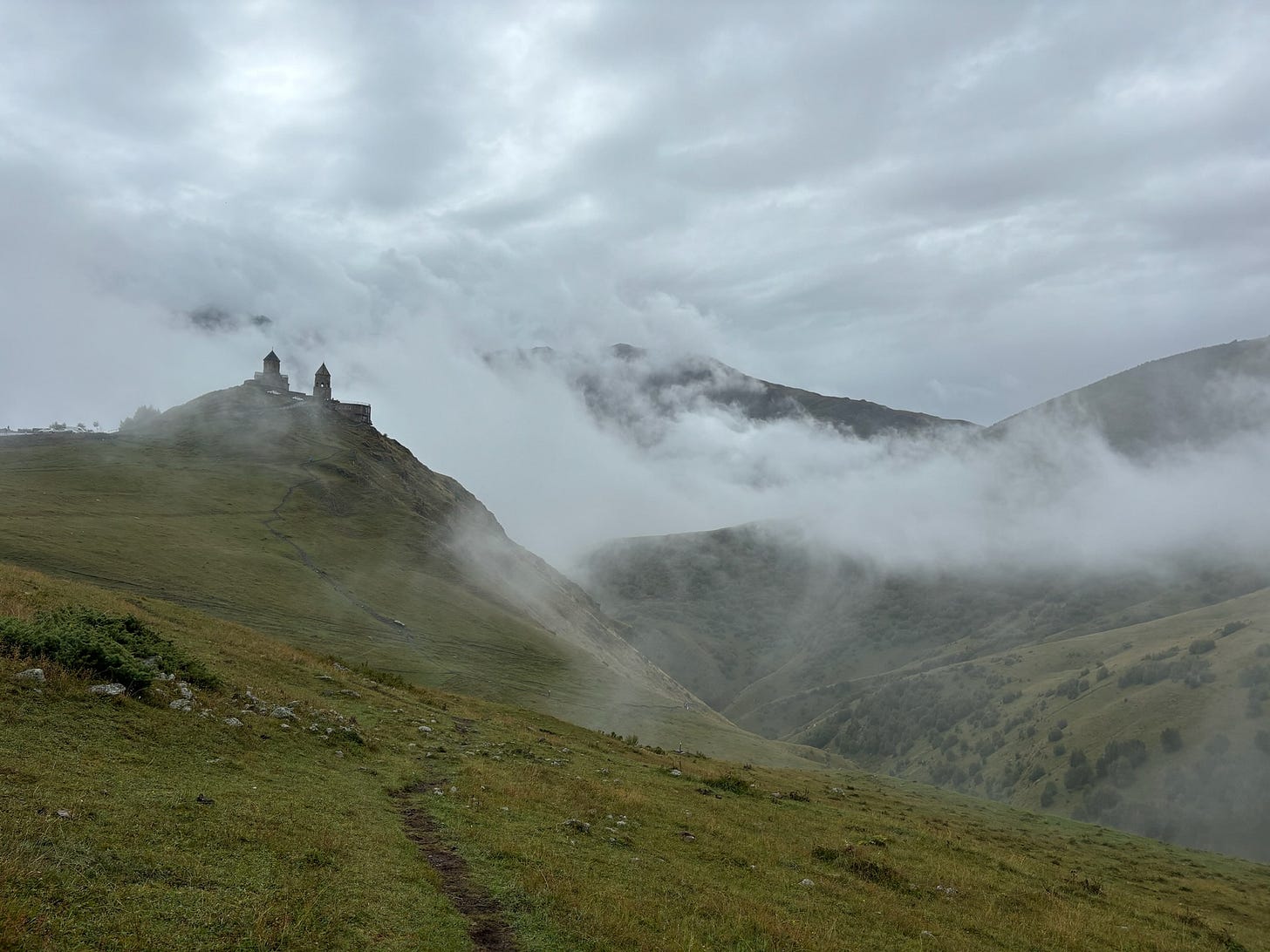Crisis in the Caucasus Part II: A War Without Missiles in Georgia
Given the shift in geopolitics surrounding the war in Ukraine, it’s more important than ever to understand how Putin and the Russian Federation’s imperial ambitions are unfolding in the 21 century.
The Cure presents Crisis in the Caucasus: Part II. This is the second installment of our three-part special feature on the Russia-backed political unrest seizing the central Eurasian Republic of Georgia.
The Kazbegi Municipality is a mind-meltingly beautiful region in Georgia that borders Russia to the north and the breaka…




